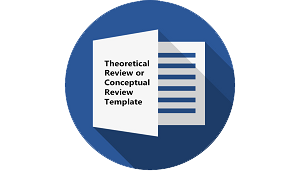Society’s Denial on Jane Eyre’s Autonomy and Subjectivity: A Martha Nussbaum’s Critical Reading
DOI:
https://doi.org/10.30957/ijoltl.v8i2.725Keywords:
objectification, subjectivity, autonomy, gender studyAbstract
Martha Nussbaum's objectification theory provides a lens for analyzing the experiences of the main character, Jane, in Charlotte Bronte's "Jane Eyre." This literary study aims to analyze the type of objectification suffered by Eyre by applying Nussbaum’s theory. According to this theory, objectification occurs when a person is reduced to a mere object for someone else's use and is not recognized as an autonomous being with their own desires and interests. In the novel and TV adaptation, Jane is subjected to objectification by several characters, including Mr. Rochester, who tries to mold her into the perfect wife, and St. John Rivers, who views her as a tool for his missionary work. Through these experiences, Bronte highlights the damaging effects of objectification and the importance of valuing individual dignity and agency. By demonstrating the harm caused by treating people as objects, the novel serves as a critique of the societal norms that perpetuated such treatment and reinforces the importance of treating all individuals with respect and empathy
Downloads
References
McCloskey, D. N. (2022). On Agreeing with Martha Nussbaum: The Tyranny of Outside Theory. Journal of Contextual Economics – Schmollers Jahrbuch, 140(3–4). https://doi.org/10.3790/schm.140.3-4.283
Nussbaum, Martha. (1999). Sex and Social Justice. Oxford: Oxford University Press.
Santoso, Edy. (2015). Feminisme Dalam Novel Jane Eyre: Analisis Pandangan Pengarang. Yogyakarta: UGM
Sasson-Levy, O., & Lomsky-Feder, E. (2022). Gendered gratitude: the civic subjectivity of israeli women soldiers. Citizenship Studies, 26(2). https://doi.org/10.1080/13621025.2022.2053838
Segal, N. (2002). Feminism and Its Discontents: A Century of Struggle with Psychoanalysis by Mari Jo Buhle . Psychoanalysis and History, 4(2). https://doi.org/10.3366/pah.2002.4.2.247
Sheff, E. (2005). Polyamorous women, sexual subjectivity and power. In Journal of Contemporary Ethnography (Vol. 34, Issue 3). https://doi.org/10.1177/0891241604274263
Vidaurreta, L., & Vidaurreta, L. (2020). Bodies and subjectivities: Women in Cuban Paralympic sports. Studies in Psychology, 41(1).
Wang, S., & Sun, J. (2022). Embodiment of feminine subjectivity by women of a tourism destination. Journal of Sustainable Tourism. https://doi.org/10.1080/09669582.2022.2053858
Downloads
Published
How to Cite
Issue
Section
License
Authors who publish with this journal agree to the following terms:
- Authors retain copyright and grant the journal right of first publication with the work simultaneously licensed under a Creative Commons Attribution-ShareAlike 4.0 International License that allows others to share the work with an acknowledgement of the work's authorship and initial publication in this journal.
- Authors are able to enter into separate, additional contractual arrangements for the non-exclusive distribution of the journal's published version of the work (e.g., post it to an institutional repository or publish it in a book), with an acknowledgement of its initial publication in this journal.
- Authors are permitted and encouraged to post their work online (e.g., in institutional repositories or on their website) prior to and during the submission process, as it can lead to productive exchanges, as well as earlier and greater citation of published work (See The Effect of Open Access).












